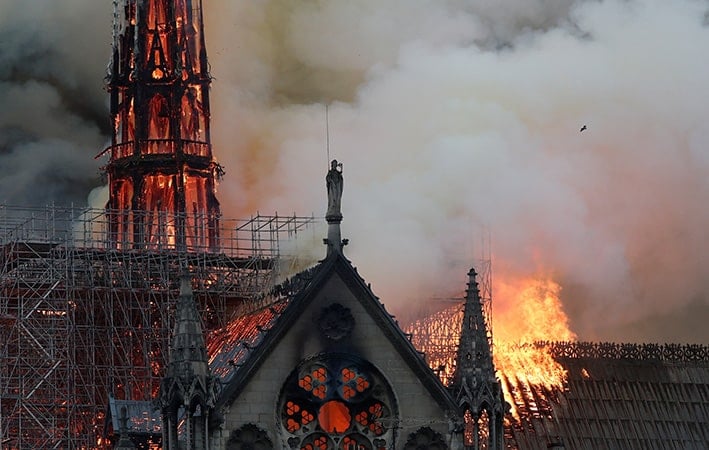
Little-known philosopher diagnosed today’s problems, and pointed to the solution
Augusto del Noce, a political philosopher who died in 1987, has until recently been almost completely unknown outside his native Italy. It is only in the last decade or so that his analyses of western culture have begun to attract serious intellectual attention.
As a result, he is now being described by some as the greatest political philosopher of the Twentieth Century that we have never heard of. His predictions about the future made from the 1950s onwards are grabbing the attention of a widening circle of English language readers with their seeming prescience and the originality of his analyses of our culture’s disintegration.
Early in his career, del Noce concluded Marxism would collapse because of an internal contradiction: it’s relativism (its insistence that religious faith, moral rules, codes and laws were constructs or falsehoods designed to perpetuate the rule of the elites) was incompatible with its insistence on objective reality: the necessity of the revolution.
However while Marxism was doomed to collapse because of its philosophical self contradictions, del Noce argued, its powerful insistence that things such as religious faith and moral ideals are mere constructs flourished and took root throughout the west, surviving their ideological parent of Marxism-Leninism.
While Marxism collapsed in eastern Europe and China its approach triumphed in the affluent societies of the west. These rejected the idea of class warfare but accepted Marxism’s denial of the transcendent and religious experience while appropriating its analysis of constructs in matters such as race, gender and morality into an overarching framework of relativism.
Three pillars of Christian decline in the West
del Noce therefore foresaw atheism as replacing Christianity as the key informing spirit of the age in affluent societies. In the Italian philosopher’s thinking this new dominant atheism rested on three pillars.
The first is eroticism, whose ideological father was Wilhelm Reich. Reich’s book published in 1930 The Sexual Revolution was, in del Noce’s opinion, the Mein Kampf of the Sexual Revolution of the 1960s. Reich, an assistant of Freud, argued that the key project of human existence was to free one’s self from taboo and sexual repression to achieve true happiness.
Essential to this, Reich specifically argued, was the destruction of the family.
Reich’s work was hugely influential among figures such as Alfred Kinsey. Meanwhile, del Noce concluded that the Sexual Revolution of the 60s was fundamentally a revolution against western civilisation.
The second pillar identified by del Noce was scientific positivism, the assumption that the scientific method and observable empirical data are the only certain knowledge which humans can possess and with which they can make progress. As scientific progress accelerated, the new scientific positivism’s assumptions spread more and more widely. Part and parcel of positivism’s assumptions were a rejection not only of the relevance of Christian revelation but of any immutable transcendent reality. Not only Christianity, but all philosophical truth, including natural law, therefore had nothing of significance to add to human existence.
The third pillar identified by del Noce is secularisation, which might be called the general rejection and negation of the transcendent. Positivism and secularisation are therefore closely related and in del Noce’s eyes, powerfully combined to dismiss the experience and reality of all transcendent experience as of no relevance to human life.
The rise of atheist totalitarianism
These three dominant and determining influences meant, del Noce said, that in an astonishingly rapid process atheism had become the core value of western civilisation. Furthermore, the new atheism was increasingly totalitarian because it assented to the totalitarian “negation of the universality of reason, so that any form of opposition to established power . . . supposedly does not express rational concerns but conceals interests of class (according to Communism) or race (according to Nazism).”
In 2021 we can add race, gender and privilege to del Noce’s original observation. As a result, those who believe in the transcendent – Christians, for example – would increasingly be marginalised and corralled under a new technocratic and political order which would subordinate all culture to matters of pure economics and politics, brook no opposition and seek to impose its will on believers, churches and faiths everywhere.
Seen at this distance, del Noce looks almost prophetic. Students of history, culture, theology, politics, philosophy and law may wish to get to know this little-known figure better and begin to unpack his thought. This would seem to be a key step in the reassertion of the fundamental importance of the transcendent and the divine to the fullness of human existence and experience.
